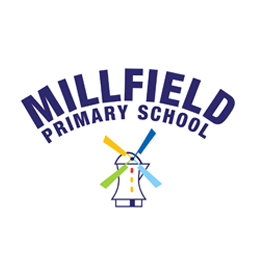Special Educational Needs SEND
School SENCO: Mrs Rosina Monsey You can contact our SENCO by emailing senco@millfieldprimary.school
Welcome to Millfield Primary School webpage for SEND. If you have any questions please do get in contact. We hope the sections below give clarity regarding our approach to students with SEND. This is supported by our communications send out to all parents and carers
Letter sent to all parents and carers on our SEND register
Please note: If you are looking for information on our Specialist Resource Base please click the link at the bottom of the page. Please do know that the admission process if through Norfolk County NOT through Millfield Primary School.
Vision
We ensure all children are successful and happy in school by being inclusive. In line with the Education Endowment Fund (EEF) recommendations this means we:
1. Create a positive and supportive environment for all children without exception
2. Build an ongoing, holistic understanding of children and their needs
3. Ensure all children have access to high quality teaching (described as Quality First Teaching)
4. Complement high quality teaching with carefully selected small-group interventions and one-to-one interventions
5. Work effectively with Teaching Assistants
At Millfield, we work to create an environment that is inclusive and supportive for all pupils, without exception, through all aspects of daily interactions and curriculum.
The starting point for educating all pupils is the same: an acceptance of diversity, pupils’ rights and the knowledge that all pupils can learn if they receive good teaching.
We will focus on preparing children for their next stage of education, heading to high school as kind and happy individuals with a good standard of communication and reading skills as a minimum.
Our Approach
As detailed above our approach is based on research and evidence outlined by the EEF and as a result leads to a Tiered system of support.
Tier 1- Whole Class Inclusive Practice
We believe that excellent Quality First Teaching (QFT) disproportionately benefits children with Special Educational Needs. QFT and inclusive practice are central to all areas of the curriculum. This means that, for the vast majority of pupils, barriers to learning can be supported and overcome within the classroom.
Strategies include, but are not limited to:
- Retrieval practice
- Explicit Vocabulary instruction
- Deliberate Practice
- Calm, emotionally safe classroom environments with clear behaviour expectations (Millfield CARES) and positive feedback of efforts (Following a behaviour policy which disproportionately benefits children with SEND).
- Scaffolding (including use of sentence starters, writing frames, word banks, checklists, models and images, use of manipulatives, visual timetables)
Teachers have a repertoire of these strategies they can use flexibly in response to the needs of all pupils.
Tier 2- Targeted Support
Although QFT supports the vast majority of pupils, some children will require some additional targeted support, including specific teaching methods, equipment or curriculum scaffolding. Where required, intervention provides the intensive focus required for pupils to make progress. This provision is flexible to meet individual needs, which are likely to change over time and follow the Assess-Plan-Do-Review model.
Examples of targeted support include
- Pre-teaching of vocabulary, ‘chunking’ learning
- Considering individual pupils’ sensory needs/ sensory diet (sensory circuits, movement breaks)
- Specialist equipment to meet individual needs: radio aids, coloured overlays, sensory toys, ear defenders, pen grips, talking tins, use of technology eg laptops
- Specific interventions, such as Tutoring with the Lightning Squad (FFT Reading), Attention Autism, Speech and Language Therapy.
- Wellbeing/ pastoral support, such as supported Social Time, Forest School, Lego Therapy
Adjustments to the whole class environment, for example carefully considered seating plans, brain breaks, dyslexia friendly fonts, reductions in sensory overload and visual stress.
Tier 3- Individualised/ Specialist Support
For a very small minority of pupils, specialist intervention will be delivered. This may be under the direction of external professionals.
Examples include:
- Individual wellbeing/ pastoral sessions: drawing and talking, Cognitive Behavioural Therapy (CBT), Emotional Literacy Support Assistant (ELSA)
- Individualised Speech and Language Therapy plans, as directed by a Speech and Language therapist
- Referrals to external agencies
- Hover TA support where possible
This will be specific to the needs of each individual. Provision is designed to enhance the school’s curriculum, with pupils still remaining within mainstream classes for the majority of the school day
Whilst the Millfield vision for SEND is central to how we support all pupils at the school, some aspects of provision may be different in our Specialist Resource Base (SRB) to the mainstream classes. This is in line with the Norfolk SRB model and guidance.
Places within the SRB are not allocated by the school but following Local Authority applications.
Please click here for details on our SRB
SEN Information Report 2025-26
